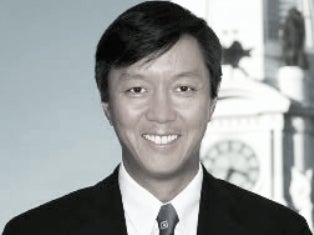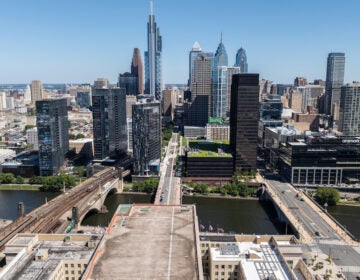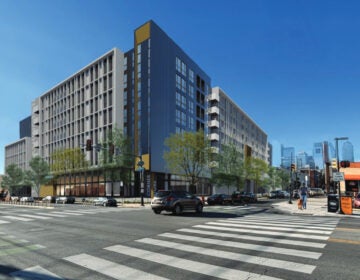Andrew Toy

ANDREW TOY
Age: 49
Education: B.A. in Economics and Masters in Public and Urban Policy, both from the University of Pennsylvania.
Professional: Director of the Retail Resource Network at the Enterprise Center. Former program officer for the Local Initiatives Support Corporation (LISC); Served both as business services manager and special projects and brownfields coordinator in the Philadelphia Commerce Department.
Community and Volunteer: Board Chair of the Philadelphia Chinatown Development Corporation and Free Schuylkill River Park; Commissioner on the Governor’s Advisory Commission on Asian American Affairs; Board Member of the Logan Square Neighborhood Association, Woodrock, Inc. – a nonprofit youth development organization, the Pennsylvania Downtown Center and The Girard Coalition, Inc.
Personal: Married to Pat; daughter Zoey, 15; son Owen, 13. Philadelphia resident for more than 30 years. Originally from Boston, attended high school in Cheltenham.
Neighborhood: Logan Square.
Appointer: Councilman Darrell Clarke
Q&A
Why is zoning reform important to you? From a neighborhood perspective, we need to be able to understand what can and can’t be done and have a sensible approach to development and redevelopment, without putting too many barriers on the things we want to happen. (All) while protecting the good things that are already in place. From a city-wide perspective, I think it’s important that there be a big picture of how the city can develop, and that we don’t discourage good development from happening because of the convoluted rules we might have in place.
Why are you a good choice for this commission? Because I can see both the local neighborhood side and the big picture/development side. In the commerce department in the city, I directed special projects and built the brownfields program. I helped businesses develop and grow in Philadelphia. In the Local Initiatives Support Corporation, I was involved in helping communities develop neighborhood plans. I have background in public policy and economics. I’ve been to the zoning board many times. And I am also president of a community development corporation.
What is the most pressing zoning issue Philadelphia faces? Two things: The code is outdated, and there needs to be remapping. There are places in the city where the code doesn’t match what exists or what should be in place in that context.
What should be done to address this issue? We need to improve or refine the zoning code to bring it up to date. And do the remapping of various parts of the city. I think there needs to be a consolidation of some of the zoning classifications to make it simpler to understand, leading to the need for fewer (zoning) overlays. If the designations were simpler to understand and up to date, there would be less need for overlays, which complicate things.
There should be something within the code that requires all large projects to have some sort of city review and community input, whether or not they meet the letter of the code.
(The code should encourage the city to be) less reliant on cars (and) a more sustainable city. We should encourage transit-related development, home-based businesses. We need to encourage those types of things we want to see.
The code requires a certain amount of parking spaces per residential unit. We might want to lower that number, to encourage more public transit use and more pedestrian-oriented development. We should have greater density around transit areas and mixed-use developments. And all these things can be addressed, to some extent, in the code.
WHYY is your source for fact-based, in-depth journalism and information. As a nonprofit organization, we rely on financial support from readers like you. Please give today.






